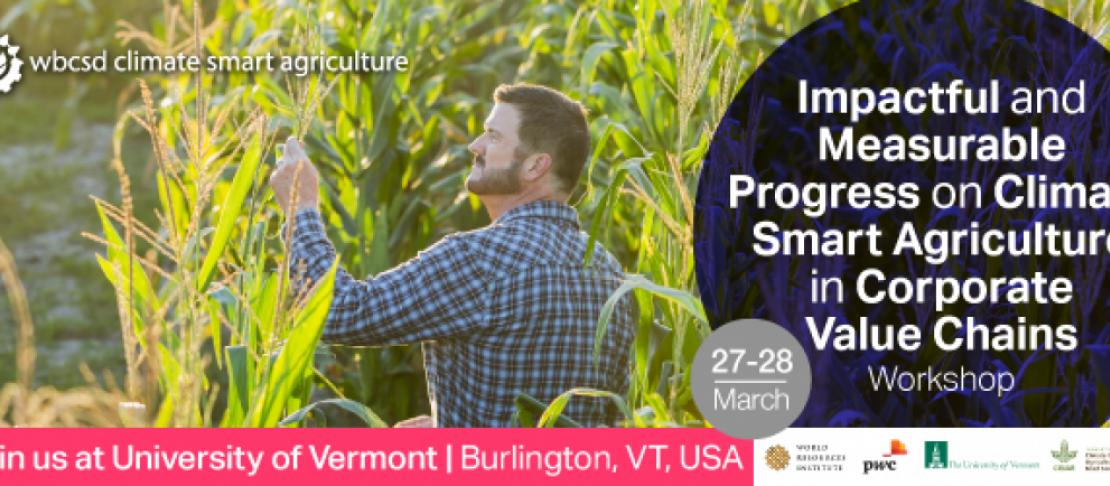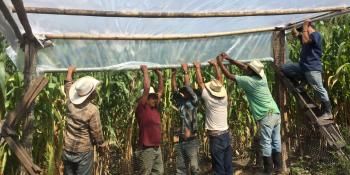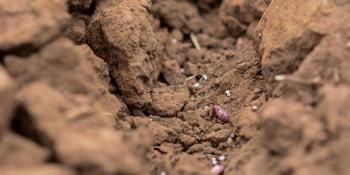Impactful and measurable progress on climate-smart agriculture in corporate value chains

Training for companies to improve measurement of climate resilience, climate change mitigation, and food loss and waste reduction
The World Business Council for Sustainable Development (WBCSD) and its partners have ambitious climate-smart agriculture (CSA) goals:
- Reducing GHG emissions from agriculture and land use by 50% by 2030
- Making 50% more nutritious food available by 2030 (including reducing food loss and waste)
- Strengthening the climate resilience of agricultural landscapes and farming communities
However, a 2017 study conducted for WBCSD by the CGIAR Research Program on Climate Change, Agriculture and Food Security (CCAFS) showed that:
- Companies must accelerate progress to meet targets for agricultural and food system GHG emissions reductions
- Measurement of progress is limited by the availability of data, particularly on downstream GHG emissions in company supply chains
- Measurement of resilience and adaptation is not widely practiced and data to measure progress towards this ambition is very limited
- Food loss and waste measurement and management remains at an early stage and requires additional technical capacity
To address these needs, and based upon interest from the private sector, WBCSD and CCAFS are partnering with the University of Vermont, the World Resources Institute (WRI) and Pricewaterhouse Coopers (PWC) to offer an interactive, two-day workshop to support companies to make impactful, measurable progress on CSA.
What business needs does it address?
- Set science-based targets for global corporate value chains in developed and developing countries
- Measure and monitor climate change resilience and risks in the value chain
- Improve Scope 3 greenhouse gas emissions accounting
- Measure and monitor food loss and waste
The workshop will provide:
- Leadership: Enables your company to establish and improve leadership in measuring and managing agricultural emissions, climate risks and food losses in your value chains
- Best-in-class expertise: Provides face-to-face training on actionable interventions and CSA-related metrics, conducted by leading researchers and practitioners
- Peer-to-peer learning: Share your experience and work with other companies on meeting science-based targets
- Follow up support: Includes access to follow-up global support webinars during 2018.
Draft Agenda
Tuesday 27 March | |
|---|---|
MorningContext setting Led by WBCSD and CCAFS |
|
AfternoonGHG Mitigation Led by CCAFS/UVM |
|
EveningReception & Dinner | |
Wednesday 28 March | |
|---|---|
MorningClimate Resilience & Adaptation Led by CCAFS |
|
AfternoonFood Loss and Waste Led by WRI |
|
For more information and to register
Please contact Dalma Somogyi of WBCSD.


